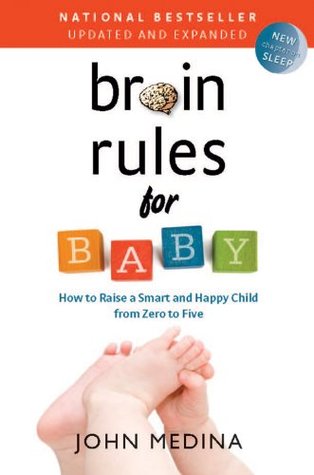More on this book
Community
Kindle Notes & Highlights
by
John Medina
Read between
September 29 - October 8, 2023
We are so darn social. Understanding this about the brain is fundamental to understanding many of the themes in this book, from empathy to language to the effects of social isolation.
If as a parent you feel as though you
can’t do it alone, that’s because you were never meant to.
There are four nutrients you will want in your behavioral formula, adjusting them as your baby gets older: breast-feeding, talking to your baby, guided play, and praising effort rather than accomplishment.
Kids praised for effort complete 50 percent more hard math problems than kids praised for intelligence.
What you praise defines what your child perceives success to be.
How you deal with the emotional lives of your children—your ability to detect, react to, promote, and provide instruction about emotional regulation—has the greatest predictive power over your baby’s future happiness.
• a demanding but warm parenting style • comfort with your own emotions • tracking your child’s emotions • verbalizing emotions • running toward emotions • two tons of empathy
This means that children will experience the physiological characteristics of emotional responses before they know what those responses are. That’s why large feelings are often scary for little people; tantrums often self-feed because of this fear.
Instead, these parents get involved in their kids’ strong feelings. They have four attitudes toward emotions (yes, their meta-emotions): • They do not judge emotions. • They acknowledge the reflexive nature of emotions. • They know that behavior is a choice, even though an emotion is not. • They see a crisis as a teachable moment.
I do know that inductive parenting takes effort. Hitting a kid does not. In my opinion, hitting is a lazy form of parenting. If you’re wondering, my wife and I don’t do it.


